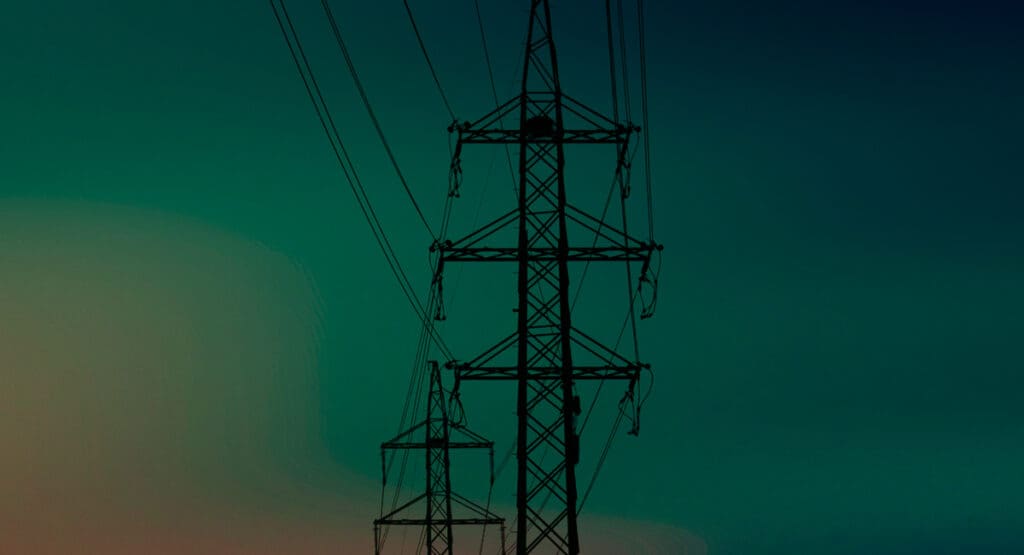The business energy world has been watching the National Energy System Operator (NESO) with bated breath throughout 2025, awaiting further information on potentially alarming increases to a key charge within domestic and non-domestic energy bills.
NESO is the public body responsible for setting guidelines on how the UK’s energy infrastructure (such as the National Grid) is utilised holistically. It is obligated to publish quarterly forecasts and a five-year view of Transmission Network Use of System (TNUoS) charges to enable market participants to plan operations and investments.
What has happened to TNUoS in 2025?
In April 2025, NESO revealed an increase to TNUoS charges to come into effect in 2026, but its following release in August 2025 (including its five-year view) showed a stark increase of more than 43 per cent from £6.2bn to £8.9bn of total TNUoS revenue.
This raised eyebrows and prompted questions around the impact this could have on businesses and people already grappling with inflation and trading headwinds in the UK.
For context, TNUoS charges currently account for 5.8% of the average household energy bill in 2025. This will almost double to 10.6% as per the latest forecasts in 2026/27. The final charges will not be confirmed until January 2026.
So, the increase on the way in 2026 is noteworthy, with further increases planned through to 2030/2031.
Why are the increases happening?
In short, the transmission owners (TOs) such as the National Grid Electricity Transmission and Scottish Hydro Electricity Transmission, have requested major investment in order to modernise and transform the UK’s energy infrastructure for a low-carbon future and the movement towards net zero.
Ofgem have granted them this investment as part of a new five-year regulatory period, dubbed RIIO-ET3. This stands for Revenue = Innovation + Incentives + Outputs, Electricity Transmission 3, because it is the third version of this price control regulation for the sector.
RIIO-ET3 is Ofgem’s way of progressing the country’s move towards low-carbon power infrastructure; with businesses and consumers ultimately footing the bill through the TNUoS charge.
Will the TNUoS price rises mean my business energy bills increase?
Yes, electricity costs are increasing in 2026, regardless of contract type, supplier or energy product.
These increases are non-commodity charges applied to your contract by governmental and regulatory bodies in the UK. They are not affected by the global wholesale market or your supplier’s margin. Non-commodity costs now represent more than 60% of your energy bill, versus a 40% commodity cost.
As well as the TNUoS increase, the new Nuclear RAB Levy has already started appearing on business bills, as of quarter four, 2025.
Both of these costs are argued to be investments in the increase of the UK’s nuclear generation capability and modernisation of infrastructure.
In fairness to the responsible authorities, lack of nuclear capacity and reliance on external generation were two of the reasons the 2021 gas price crisis hit the UK so hard; and these moves are part of a strategy to mitigate this risk in future as geopolitical uncertainty persists, as well as a drive towards net zero.
But this will be little comfort to businesses who have been battling inflationary costs, Brexit impacts, shifting regulations and global uncertainty in recent years.
How much will TNUoS price rises increase my bill by?
This is the big question which will not be fully answered until January 2026. It will also be dependent on your site’s geographic location and TCR banding.
Most suppliers itemise the TCR banding on your bill, because it is determined by the “LLF” number in your MPAN’s topline. If you need to determine this, or can’t figure our your band, just reach out to us and we can support your business to plan for this cost increase. Use the form at the bottom of this page.
By applying the TCR band and your geographic location, you can determine what your TNUoS charge is forecasted to increase to, as per the latest release from NESO. Access the latest forecast on the “TNUoS Tariffs and Notifications of Changes” tab on NESO’s TNUoS Charges webpage. Then go the the “Demand Residual Charges” page.
Again, if this is too confusing or fiddly, speak to our experts for some support.
What part of my bill will be affected?
For fixed contracts, this charge is wrapped up into your standing charge. If you have a more complex pass-through contract, this charge is itemised by line, so you can watch it more easily.
Due to the variable nature of these non-commodity charges and the increased intervention from the government, it is arguable that pass-through contracts are losing some of the appeal that they previously benefited from. Even sector experts would have struggled to predict the degree to which NESO are increasing the TNUoS charge for 2026 onwards if they were asked two years ago.
When will the TNUoS price rises begin?
- The final price changes will be confirmed and released by NESO in January 2026 (before 31st)
- The new charge will take effect in April 2026’s billing period
- The next forecast for 2027’s prices will be released in August 2026
- This is repeated in November, before new prices are confirmed in January 2027
…and the cycle continues.
What kind of protection does a fixed contract offer?
We caught up with Steven Lyons, Head of Sales at Procure Smart, to offer some insight from his industry relationships.

He said: “This is very much the main talking point of the industry at the moment. The increases seem stark because this is a massive investment in the country’s future.
“We are all used to seeing bills rise in recent years, but I predict that businesses will really notice this shift.
“I speak to suppliers around the UK every day and they are as interested as anyone in what the final figures look like in January.
“If anyone is concerned about their rising business energy costs, I would urge them to reach out to Procure Smart, including if they are struggling to project what changes might be applied to their standing charge. We can cast an expert eye over bills and contracts to provide bespoke guidance where needed.
“We can help with energy costs in many ways and picking our brain on the phone for 10 minutes costs nothing, but could save thousands.”
LIVE EXAMPLE: We have received communications from one UK electricity supplier, detailing their plans for the TNUoS price rises. In this email, they confirmed a £0.45 addition to existing contract unit rates to cover the additional cost of the RAB Levy and TNUoS.
Complete the form below to ask one of our experts about TNUoS charges, or get in touch via email/phone.

